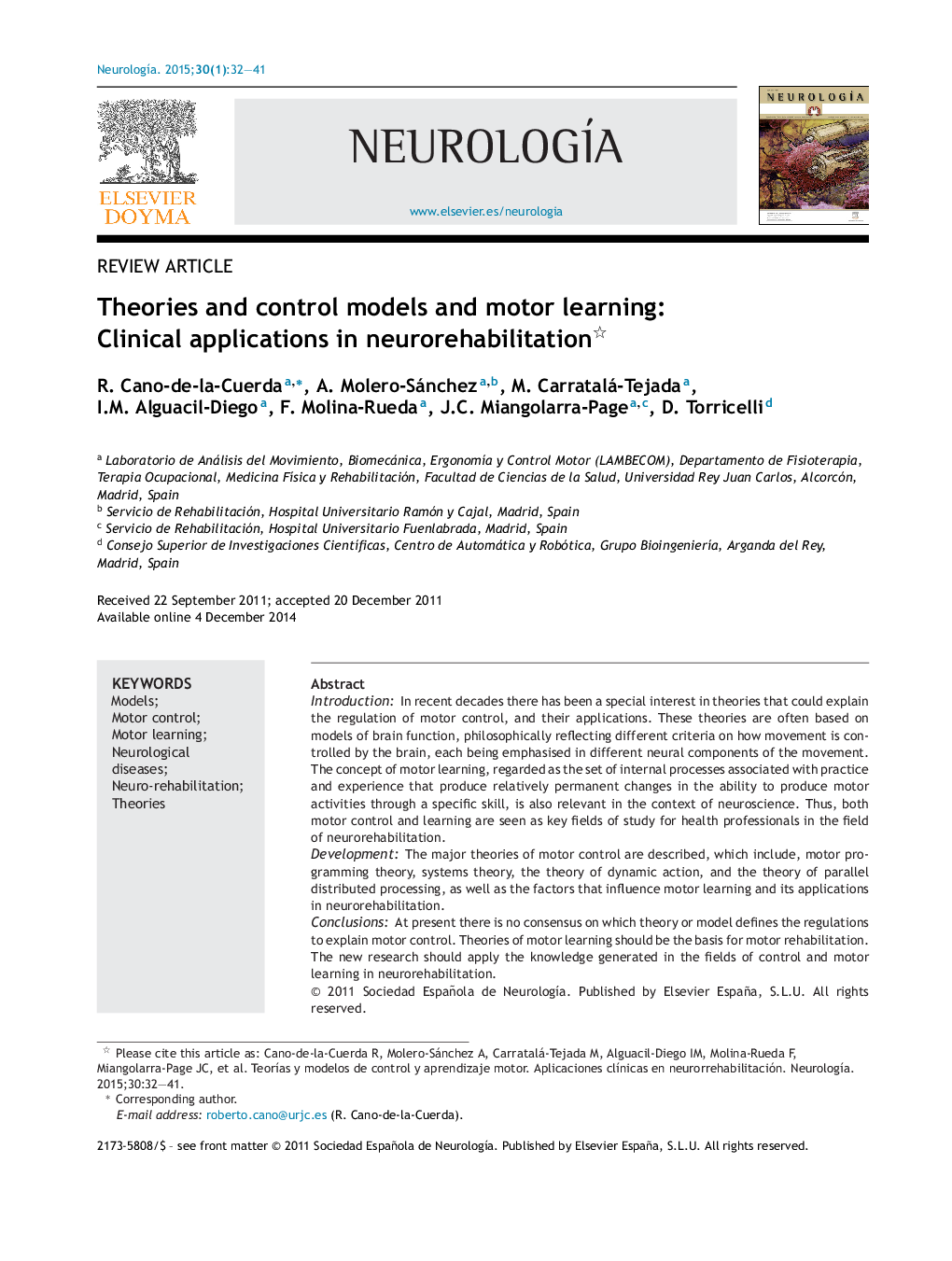| کد مقاله | کد نشریه | سال انتشار | مقاله انگلیسی | نسخه تمام متن |
|---|---|---|---|---|
| 3077318 | 1189135 | 2015 | 10 صفحه PDF | دانلود رایگان |
IntroductionIn recent decades there has been a special interest in theories that could explain the regulation of motor control, and their applications. These theories are often based on models of brain function, philosophically reflecting different criteria on how movement is controlled by the brain, each being emphasised in different neural components of the movement. The concept of motor learning, regarded as the set of internal processes associated with practice and experience that produce relatively permanent changes in the ability to produce motor activities through a specific skill, is also relevant in the context of neuroscience. Thus, both motor control and learning are seen as key fields of study for health professionals in the field of neurorehabilitation.DevelopmentThe major theories of motor control are described, which include, motor programming theory, systems theory, the theory of dynamic action, and the theory of parallel distributed processing, as well as the factors that influence motor learning and its applications in neurorehabilitation.ConclusionsAt present there is no consensus on which theory or model defines the regulations to explain motor control. Theories of motor learning should be the basis for motor rehabilitation. The new research should apply the knowledge generated in the fields of control and motor learning in neurorehabilitation.
ResumenIntroducciónEn las últimas décadas ha existido un especial interés por las teorías que podrían explicar el gobierno del control motor y sus aplicaciones. Estas teorías suelen basarse en mode-los de función cerebral, reflejando criterios filosóficamente diferentes sobre la forma en la que el movimiento es controlado por el cerebro, enfatizando cada una de ellas en los distintos componentes neurales del movimiento. Asimismo, en el contexto de las neurociencias, toma relevancia el concepto de aprendizaje motor, considerado como el conjunto de procesos inter-nos asociados a la práctica, y la experiencia, que producen cambios relativamente permanentes en la capacidad de producir actividades motoras, a través de una habilidad específica. Por lo que ambos, control y aprendizaje motor, se posicionan como campos de estudio fundamentales para los profesionales sanitarios en el campo de la neurorrehabilitación.DesarrolloSe describen las principales teorías de control motor como la teoría de la programa-ción motora, la teoría de sistemas, la teoría de la acción dinámica o la teoría del procesamiento de distribución en paralelo, así como los factores que influyen en el aprendizaje motor y sus aplicaciones en neurorrehabilitación.ConclusionesEn la actualidad no existe un consenso sobre qué teoría o modelo es definitorio en dar explicación al gobierno del control motor. Las teorías sobre el aprendizaje motor deben ser la base para la rehabilitación motora. Las nuevas líneas de investigación deben aplicar los conocimientos generados en los campos del control y aprendizaje motor en neurorrehabilita-ción.
Journal: Neurología (English Edition) - Volume 30, Issue 1, January–February 2015, Pages 32–41
